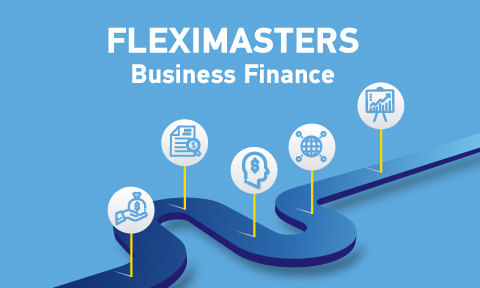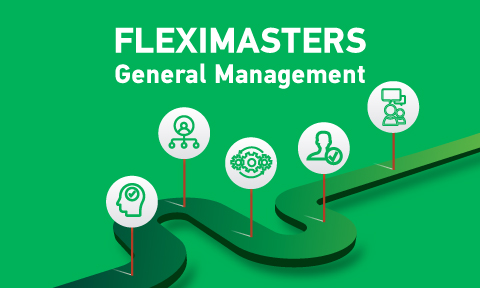Introduction
As the accountancy sector continues to transform, accounting professionals must upskill so that they can harness emerging technologies like AI, machine learning and data analytics to greatly enhance efficiency and deliver real-time insights to assist in decision making and fraud detection.
The FlexiMasters in Accounting Analytics and Digital Forensics aims to equip current and aspiring accounting professionals with in-demand skills such as AI programming (including Python and R), data analytics, data visualization, forensics accounting and digital forensics.Objectives
- Provide learners with better access to Postgraduate level training so that they can upskill/reskill with a personalised learning pathway.
- Enable adult learners to build on their experience, transit and prepare for career shifts and become future-ready amidst fast-changing employment market.
- Credits earned can be stacked towards postgraduate degrees at NBS.
Outline
| Module | Objective |
|---|---|
Analytics Strategy and Techniques | Analytics, Data Science and Machine Learning are transforming business, societies, and governments. In this module, you will learn the important concepts and techniques with real world applications and understand how data-driven strategy
impact the world. Learning Outcomes
|
AI in Accounting & Finance | Expand your digital literacy with analytical thinking, critical thinking and reasoning skills. In this module, you will create state-of-the-art predictive and prescriptive analytics models with AI that will help automate the processes in accounting and finance. You will also learn how to configure Google Cloud system for implementing AI models. Learning Outcomes
|
Investigative Forensics Accounting and Digital Forensics | The module will introduce you to the concept of forensic accounting, as well as various investigation techniques and tools. You will explore how investigative analytics are applied to identify red flags and unusual activities, support/dismiss
Using real-life cases and hands-on learning approach, you will learn the practical application of tools and technologies in a fraud investigation. Learning Outcomes
|
| To improve organisational performance and understand the implications for decision-making, accountants and auditors need to extract meaningful patterns and insights from data to provide better insights into a firm, client, customer, supplier, etc. In this module, you will learn practical aspects of the analytics process using data analytics tools and techniques widely adopted by international audit firms, and demonstrate the application of accounting and audit analytics through
visualisation of the results. Learning Outcomes
|
Predictive Analytics: A Managerial Emphasis | Using business cases, you will learn to see the managerial perspective in developing a business analytical case to obtain the explanatory or predictive results. You will develop skills in drawing inferences from data by using statistical and data mining tools to guide decision making for various business problems such as financial statement fraud detection, analysis of internal controls deficiencies, credit risk analysis, customer segmentation, forecasting and trend analysis. Learning Outcomes
|
Fees and Funding
Standard Course Fee: S$22,500 (Before GST)
| Course Fees in SGD | |||
|---|---|---|---|
| Fees BEFORE funding & GST | Fees AFTER funding & 9% GST | ||
| Singapore Citizens (aged 21-39) / PR (aged ≥21) 70% Funding | $22,500.00 | $7,357.50 | |
| Singapore Citizens (aged ≥40) MCES1 - up to 90% | $22,500.00 | $2,857.50 | |
| SME-sponsored Singapore Citizens / PR ETSS2 - up to 90% | $22,500.00 | $2,857.50 | |
| NTU Alumni Fee payable after 70% SSG Funding and use of $1,600 **NTU Alumni Course Credits | $22,500.00 | $6,834.30 | |
1. Under the SkillsFuture Mid-career Enhanced Subsidy (MCES) scheme. For more information, visit the SkillsFuture website here.
2. Under
the Enhanced Training Support for Small & Medium Enterprises (ETSS) scheme. For more information, click here.
Singapore Citizens, aged 25 and above, and self-sponsored, may use their SkillsFuture Credit to defray full or part of the nett course fee.
Singapore Citizens, aged 40 and above, and self-sponsored, may use their NEW Top-up of $4,000 SkillsFuture Credit (Mid-Career) to defray full or part of the nett course fee only for FlexiMasters courses that can be stacked into the respective Master’s programme.
You can submit your SkillsFuture Credit claims by logging into MySkillsFuture.sg. Please click here for “How do I submit a claim for SkillsFuture credit?” and other FAQs.
Funding Requirements
- You must achieve a minimum of 75% attendance for each module.
- You
must complete and pass all assessment components.
You do not need to contact SkillsFuture for funding before course registration. NTU will handle the funding paperwork for both self and company-sponsored applicants. You will be invoiced
the net amount after funding and GST.
**NTU Alumni Course Credits
All NTU/NIE alumni may utilise their alumni credits of $1,600 to co-pay up to 50% of the course fee (exclusive of prevailing GST) payable for courses offered by NTU-Continuing Education Training
(CET) Units. It is your responsibility to inform us if you wish to utilize alumni credits before the start of the programme. For more info, please click here.
There will be no refund of the $1,600 Alumni course credits if you withdraw from the programme after successful admission.
Recommended Add-Ons
 | FlexiMasters in Business Finance Suitable for anyone interested in finance but who had minimal exposure to this field at a tertiary academic level, the FlexiMasters in Business Finance aims to give you broad exposure to financial topics, including corporate finance and investments, plus newer fields such as fintech and sustainable finance. |
 | FlexiMasters in General Management This FlexiMasters in General Management will equip you with the skills necessary to run modern enterprises. The five-course sequence will focus on key aspects of business strategy, people management, operations, company governance, cultural intelligence, and business negotiation. |






 Accounting and Audit Analytics
Accounting and Audit Analytics

.png?sfvrsn=25651bb_0)

